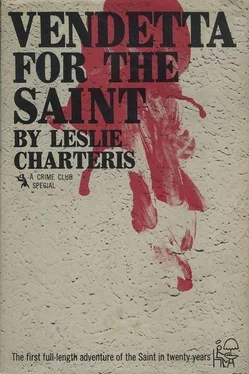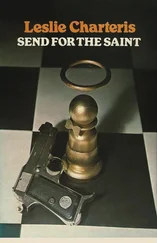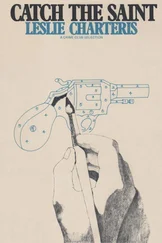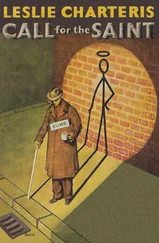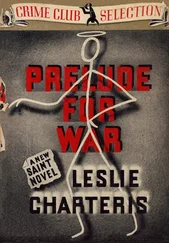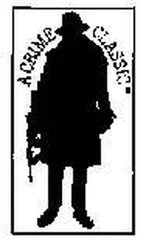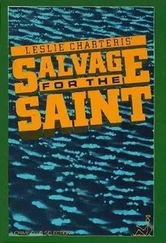“You should have taken over his loot while you had the chance, for insurance,” said the Saint, touching the lock on the valise.
The matriarch drew up her dumpy figure with pride.
“I am not a thief,” she said. “I would not touch stolen money.”
Simon shrugged his renewed bafflement at the vagaries of the human conscience.
“I wish I could see the difference between that and the money he used to send you from America.”
“What she forgets,” Cartelli said viciously, “is that Lo Zio himself was once a Mafia Don—”
“Sta zitto!” shrieked Donna Maria unavailingly.
“— and she had nothing against his support in those days. And after he had a stroke and was no more good for anything, Don Pasquale offered him this deal as a kind of pension, and he was glad to take it.”
“Enough, vigliacco! Lo Zio is sick, dying — you cannot speak of him like that—”
“I tell the truth,” Cartelli said harshly.
Then he spoke again in English: “Lookit, Saint, these people don’t mean nut’n to you. When I hadda give a contract for Euston — yeah, an’ for you too — it was self defense, nut’n else, self defense like you get off for in court. Nut’n personal. Okay, so now I’m licked. You tipped off the cops about me, an’ even the Mafia won’t back me no more after all this trouble I brought on them. But you an’ me can talk business.”
The Saint’s thumb moved against the catch on which it was resting, and the fastening snapped open. The valise had not been locked. He lifted the lid, and exposed its contents of neatly tied and packed bundles of paper currency in the formats and colors of various solvent nations.
“About this?” he asked.
“Yeah. I oughta have left it anyhow — I done without it all these years, an’ I got enough stashed in a Swiss bank to keep me from starving now, once I get outa Italy. You take it — give what you like to the old woman an’ Gina, an’ keep the rest. There’s plenty to make up for all the trouble you had.” Desperate earnestness rasped through the gravel in Cartelli’s voice. “No one ain’t never gonna hear about it from me, if you just gimme a chance an’ let me go.”
Simon Templar relaxed against the table, half hitching one leg on to it to make a seat, and played the fingers of his free hand meditatively over the bundles of cash in the open bag. For some seconds of agonizing suspense he seemed to be waiting and listening for some inner voice to advise him.
At last he looked up, with a smile.
“All right Dino,” he said. “If that’s how you want it, get going.”
Gina gave a little gasp.
Cartelli gave nothing, not even a grunt of thanks. Without a word he grabbed up his coat and huddled into it as he went out.
Simon followed him far enough to watch his flat footed march across the hallway, and to make sure that when the front door slammed it was with Cartelli on the outside and not turning to sneak back for a surprise counter-attack. He waited long enough to hear the little car outside start up and begin to move away.
He came back into the room again to see Donna Maria sitting in a chair with her face buried in her hands, and Gina staring at him in a kind of lost and lonely perplexity.
“You let him go,” she said accusingly. “For his stolen money.”
“Well, that was one good reason,” Simon said cheerfully.
“Do you think I would touch it?”
“You sound like Donna Maria. So don’t touch it. But I’m sure the bank, or their insurance company, would pay a very handsome reward for having it returned. Do you see anything immoral about that?”
“But after all he’s done — the murders—”
From outside, but not far away, they were suddenly aware of a confused sequence of roaring engines, squealing brakes, shouts, a crash, and then shots. Several shots. And then the disturbance was ended as abruptly as it had begun.
“What was that?” Gina whispered.
Simon was lighting a cigarette, with the feeling that this was a moment for rather special indulgence.
“I think that was Dino’s curtain call,” he said calmly. “As he told us, he should never have come back for these souvenirs of that old boyish escapade. But—” he reverted to Italian again for the benefit of Donna Maria, who had raised her head in be-muddled but fearful surmise — “I suppose greed got him into this, and it’s only poetic that greed should put him out. Digging up this money cost him enough time for me to catch up with him, and then I only had to gain a little more time for the police and the army to catch up with me. We’ve been having a lot of fun since last night which I’ll have to tell you about. A little while ago I managed to take over the fastest transportation, which was mine to begin with anyway because I hired it most respectably; but the head policeman this time is nobody’s fool, and I knew he would not take long to guess that this might be the place where I was going.”
“The police,” Donna Maria repeated stonily.
Simon looked at her steadily.
“This one, Marco Ponti, is not like some others,” he said. “I think I could persuade him to let Dino Cartelli be buried under his own name — shot while trying to escape after digging up his share of the bank robbery, which he buried in the Destamio house, where the family had been kind enough to receive him as a guest in his young days, knowing nothing about his Mafia connections. I don’t think he will mind leaving Lo Zio to another Judge whom he will have to face soon enough. I think Marco will buy all that — if you will agree not to try to keep Gina here against her will.”
“But where will I go?” Gina asked.
“Wherever the sun shines, and you can dance and laugh and play, as a girl should when she’s young. You could try St Tropez for a change from everything you’ve been used to. Or Copenhagen or Nassau or California, or any other place you’ve dreamed of seeing. If you like, I’ll go some of the way with you and get you started.”
Her wonderful eyes were still fixed on him in demoralizing contemplation when the jangle of the front door bell announced an obligatory but obviously parenthetic interruption.
